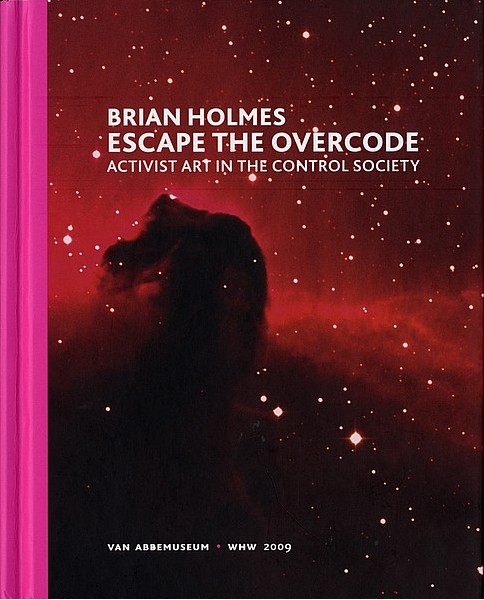Πέτρος Παπακωνσταντίνου: Επιστροφή στο μέλλον – Η κρίση του υπαρκτού καπιταλισμού και η αριστερά (2010) [Greek]
Filed under book | Tags: · capitalism, communism, economy, financial crisis, geopolitics, left, neoliberalism, technology

Η χειρότερη οικονομική ύφεση από την εποχή του μεσοπολέμου σήμανε το ιδεολογικό κραχ του νεοφιλελευθερισμού, αλλά δεν ανέδειξε καινούριο κοινωνικό υπόδειγμα. Οι μεγάλες δυνάμεις θυμίζουν εμφραγματία ο οποίος μόλις έχει βγει από την εντατική και το πρώτο πράγμα που κάνει είναι να ανάψει τσιγάρο: ενώ η πραγματική ανεργία στις ΗΠΑ αγγίζει το 17,5%, τα μπόνους των golden boys ανέρχονται σε αστρονομικά όρια.
Ανεξάρτητα από τις συγκυριακές διακυμάνσεις της οικονομίας, υποστηρίζει ο Πέτρος Παπακωνσταντίνου, οι μεγαλύτερες ανατροπές βρίσκονται μπροστά μας. Σαν άλλος μαθητευόμενος μάγος, ο παγκόσμιος καπιταλισμός αδυνατεί να ελέγξει τις τεράστιες δυνάμεις της τρίτης τεχνολογικής επανάστασης -πληροφορική, αυτοματοποίηση, βιοτεχνολογία- που ο ίδιος απελευθέρωσε. Στο γεωπολιτικό επίπεδο, η κρίση επωάζει όχι μόνο τη διάρρηξη της παγκοσμιοποίησης, αλλά και το τέλος δύο αιώνων πλανητικής κυριαρχίας του λευκού ανθρώπου, όπως συμβολικά σηματοδότησαν οι βαθιές υποκλίσεις του πρώτου μαύρου προέδρου της Αμερικής στον αυτοκράτορα της Ιαπωνίας και στον ηγέτη της “κομμουνιστικής” Κίνας.
Ξεκινώντας από την αδυναμία της Αριστεράς να επωφεληθεί πολιτικά από την ευνοϊκή συγκυρία, ο συγγραφέας αναζητά μια άμεση απάντηση στην κρίση, ένα στενό δρόμο ανάμεσα σε μια Αριστερά δωρητή σώματος της Σοσιαλδημοκρατίας και σε μια Αριστερά πολιτικό ερημίτη. Παράλληλα, επιστρέφει στα μεγάλα στρατηγικά ερωτήματα που έθεσε η κατάρρευση του 1989-1990, υποστηρίζοντας ότι ο κομμουνισμός δεν μπορεί να νοείται ως καθεστώς, αλλά ως η γραμμή του ορίζοντα, που όσο την πλησιάζουμε, τόσο απομακρύνεται, παραμένει, ωστόσο, αναγκαία για να διατηρεί κανείς τον προσανατολισμό του, ιδίως σε εποχές θύελλας.
Η έκδοση επιχειρεί µια συνεκτική θεώρηση του µεγάλου µετασχηµατισµού που δροµολόγησε ο διεθνής καπιταλισµός τα τελευταία τριάντα χρόνια, µετά το σοκ του Μάη του ’68 και την οικονοµική κρίση της δεκαετίας του ’70, η οποία έθεσε τέλος στον κεϊνσιανό συµβιβασµό του “κοινωνικού κράτους”.
Back to the Future: The crisis of contemporary capitalism and the Left
Publisher: Livanis, Athens, 2010
ISBN: 9789601421506
239 pages
Brian Holmes: Escape the Overcode: Activist Art in the Control Society (2009)
Filed under book | Tags: · activism, art, capitalism, critique, cybernetics, geopoetics, geopolitics, mapping, media activism, network culture, politics, social movements, theory

“This publication contains a selection of texts and essays by the writer Brian Holmes that engage with the possibilities and problematics of geopolitics and geopoetics. Holmes is a crucial contemporary writer and thinker whose insight into current social and political developments and how they relate to artistic processes opens up a new field of “geocritique”.
The examples he cites extend across Latin America, Europe and Asia, where he looks at networks, artworks, films, institutions and protest movements for signs of how future progressive strategies might be shaped. The texts here are connected in part with the long-term collaborative research project Continental Drift.”
Publisher Van Abbemuseum, Eindhoven, and Zagreb: WHW, 2009
Research Series, 2
ISBN: 9789070149987
414 pages
HTML
PDF’d HTML (updated on 2015-4-28)
Michael J. Shapiro: Cinematic Geopolitics (2008)
Filed under book | Tags: · biopolitics, cinema, film, film theory, geopolitics, military, philosophy of film, politics, war

In recent years, film has been one of the major genres within which the imaginaries involved in mapping the geopolitical world have been represented and reflected upon.
In this book, one of America’s foremost theorists of culture and politics treats those aspects of the “geopolitical aesthetic” that must be addressed in light of both the post cold war and post 9/11 world and contemporary film theory and philosophy. Beginning with an account of his experience as a juror at film festival’s, Michael J. Shapiro’s Cinematic Geopolitics analyzes the ways in which film festival space and both feature and documentary films function as counter-spaces to the contemporary “violent cartography” occasioned by governmental policy, especially the current “war on terror.”
Influenced by the cinema-philosophy relationship developed by Gilles Deleuze and the politics of aesthetics thinking of Jacques Ranciere, the book’s chapters examines a range of films from established classics like the Deer Hunter and the Battle of Algiers to contemporary films such as Dirty Pretty Things and the Fog of War. Shapiro’s use of philosophical and theoretical works makes this cutting edge examination of film and politics essential reading for all students and scholars with an interest in film and politics.
Published by Routledge, 2008
ISBN 041577635X, 9780415776356
180 pages
Key terms:
Okwe, Deer Hunter, Dirty Pretty Things, fog of war, war on terror, El Salvador, Road to Guantanamo, Critique of Judgment, Gilles Deleuze, Jacques Ranciere, biopolitical, Cold War, Afghanistan, geopolitical, Fahrenheit 9/11, John Cassady, Iraq, Vietnam War, Predator Drone
PDF (updated on 2012-9-7)
Comment (0)
